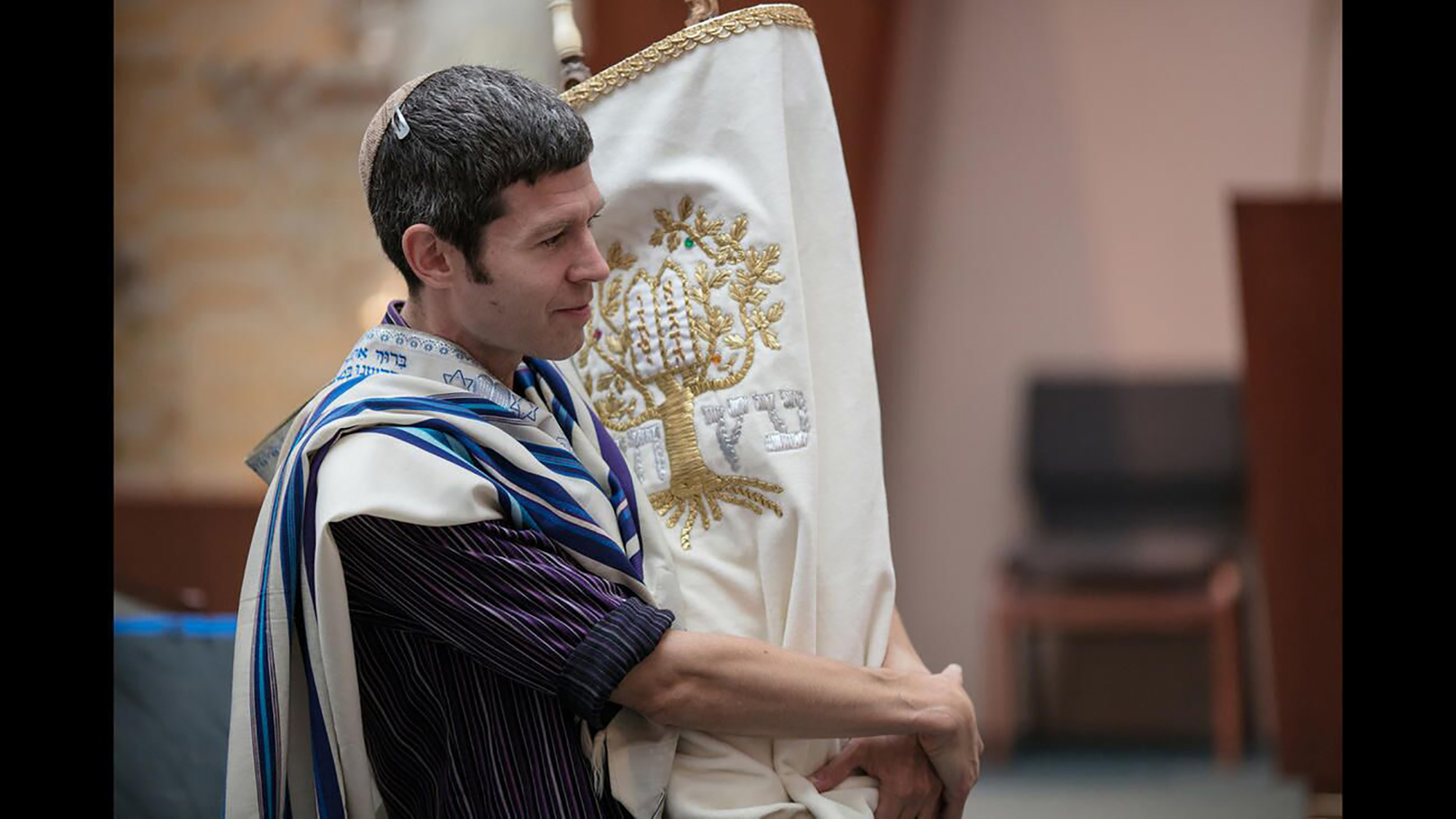What Would Heschel Do? Why I Support a Cease-Fire between Israel and Hamas
By Rabbi Josh Jacobs-Velde
January 22nd, 2024
What would Rabbi Abraham Joshua Heschel do? That is a question I’ve asked multiple times during these difficult, at times tortuous months since the abject horrors of October 7. As some of you know, I’ve been studying a neo-Hasidic approach to Judaism with Rabbi Arthur Green for the past year and a half; Rabbi Art is one of Heschel’s few remaining direct students who are still alive. While he has always been a central Jewish figure to me, through some of Rabbi Art’s stories and anecdotes, I’ve come to feel an even deeper connection to Heschel’s legacy.
Heschel’s daughter, Susannah Heschel, relates this story: a journalist once asked my father why he had come to a demonstration against the war in Vietnam. “I am here because I cannot pray,” my father told him.
Confused and a bit annoyed, the journalist asked him, “What do you mean, you can’t pray so you come to a demonstration against the war?” And my father replied, “Whenever I open the prayerbook, I see before me images of children burning from napalm.” “Indeed, we forfeit the right to pray,” my father said, “if we are silent about the cruelties committed in our name by our government. In a free society, some are guilty but all are responsible. How dare we come before God with our prayers when we commit atrocities against the one image we have of the divine: human beings?”
I have only come to support a cease-fire more recently. In the initial weeks after October 7, I agreed that Israel had a right to do what it needed to do to make it so that Hamas could not perpetrate another attack like October 7. Hamas is a sadistic, extremist radical Islamist organization that clearly could not be allowed to be kept in power to simply plan its next attack.
I do not know how to fight a modern war, especially in a place as densely populated as Gaza, where, as we all know, Hamas is committed to using civilians as human shields, building their tunnels under hospitals, etc. I recognize that Israel has been making efforts to safeguard civilians, to drop leaflets to inform Palestinians of upcoming missile strikes and telling civilians to leave parts of Gaza. And yet I have often heard, from multiple news sources, that there was and is no safe place to be in Gaza.
I found a December 14 piece in the Washington Post particularly disturbing in terms of how Israel has conducted this war, undercutting Israeli government claims of doing everything possible to protect Palestinian civilians. The article shares the results of a US intelligence assessment that the IDF “has fired more than 29,000 air-to-ground munitions into the Palestinian enclave since Oct. 7, and only 55 to 60 percent of them have been precision-guided, according to a new assessment from the Office of the Director of National Intelligence.”
This is why people, including President Biden, have called the Israeli bombing of Gaza “indiscriminate.” The article did not explain why Israel did not use solely precision-guided munitions. Was it to save money? Were there other logistical issues? I don’t know. But the painful truth that the article makes clear is there could have been dramatically fewer civilian deaths in Gaza if Israel had made different decisions.
Those of us who have followed the news, who have been able to allow ourselves to take in some level of Palestinian suffering, have seen unspeakable things. Israel’s bombing campaign is the most destructive of the 21st-century, more destructive than Russia in Ukraine or Asad in Syria. More than 10,000 children have been killed in Gaza since Oct. 7 according to the Hamas-run Gaza Ministry of Health, and one in four people are starving in Gaza because of the war. Whole families have wiped out by Israeli missile strikes.
This article from just a few days ago was one of the most disturbing: “A kitchen table amputation without anesthetic in Gaza is one of many,” describes the efforts of a Palestinian orthopedic surgeon to amputate his teenage niece’s leg, blown off by an Israeli tank shell, “with a normal cooking knife, scissors and a needle and sewing thread,” amid the collapse of the Gaza healthcare system.
It is my belief that Heschel would’ve read that article and said, “This is enough. This kind of situation cannot continue. We cannot do this to innocent human beings created in the divine image. We need to have a cease-fire now.”
What is Israel to do? I know it’s not an easy question. I deeply sympathize with Israel’s desire to eradicate Hamas to the greatest degree possible, but I cannot support that goal at so steep a human cost. Importantly, a fissure is growing in Israeli society that a cease-fire is necessary to prioritize freeing the Israeli hostages still in captivity, versus Israel continuing to conduct its war on Hamas as it has been.
The long time Israeli-Palestinian conflict observer Thomas Friedman offers one intelligent analysis of how a cease-fire could work. I don’t know how it will work; clearly it will take the support of the United States and other nations.
But I do know the carnage needs to stop now because I hear Heschel’s voice in my ear.
Copyright © 2024 Oseh Shalom. All rights reserved. Website designed by Addicott Web.